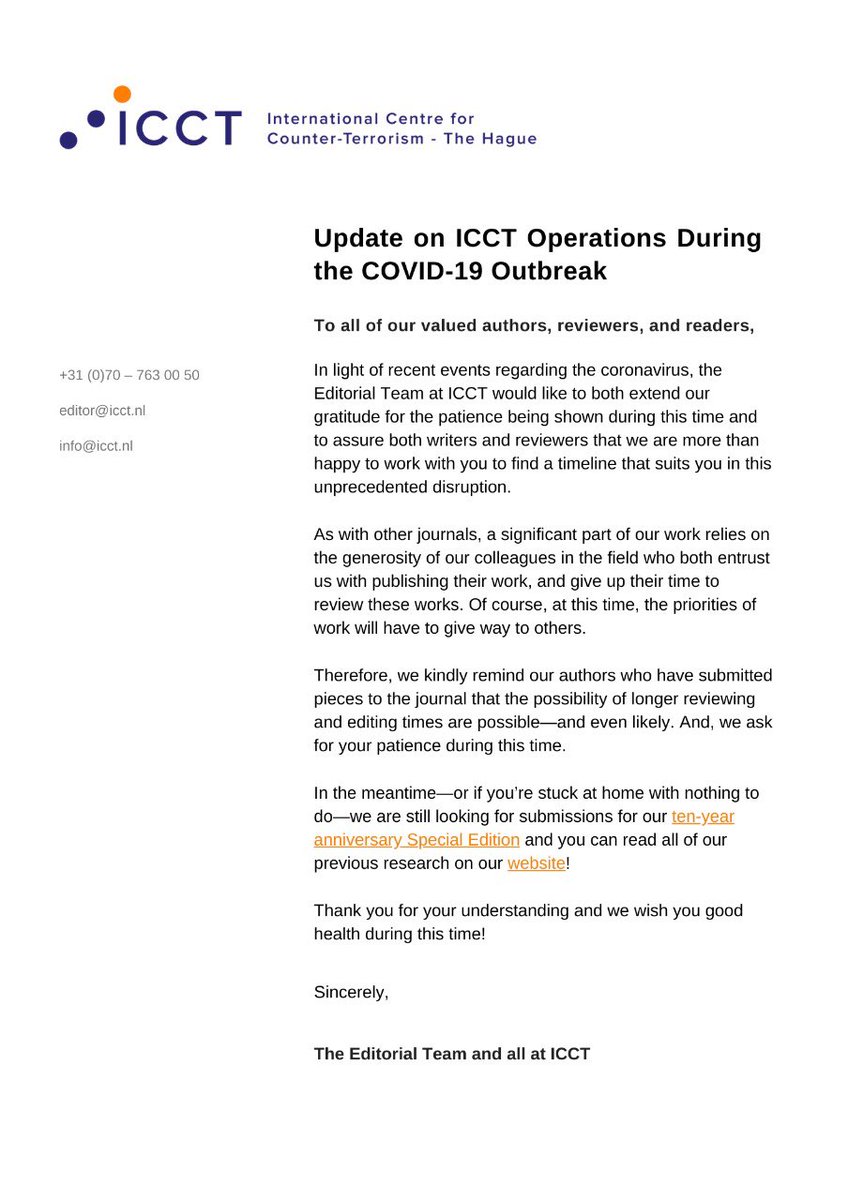ICCT Project Manager/Research Fellow @reinierbergema kicks off Day Two of #ICCTConf by introducing this morning’s panelists, @clairevandyck, @DrDPrabhat, and @lauravanwaas! @TMCAsser 

@BristolUni’s @DrDPrabhat uses the recent case of #ShamimaBegum to illustrate how statelessness is the foremost concern when the deprivation of citizenship is used for #counterterrorism purposes #ICCTConf 

Next up @lauravanwaas, cofounder of @institute_si, explains how denial of nationality is used as a way to strip people or communities of rights - and how it is one of the most challenging human rights issues we face today. #ICCTConf 

@lauravanwaas Draws a parallel between the case of #ShamimaBegum, mentioned by @DrDPrabhat, and that of Dominicans of Haitian descent, in that it is people or communities with a migratory background who are most at risk of having their citizenship revoked #ICCTConf @institute_si 

Next up, @clairevandyck. She begins by telling the audience at #ICCTConf about the investigative journalism project she began in 2014 on Salfism, particularly Salafi women, in #Limburg, Netherlands. @TMCAsser 

@clairevandyck shares some background on the young people of Maastricht who left the Netherlands to join the #caliphate, and the missed signs of increasing #radicalization that preceded their decision to leave for Syria. “The dots were never connected” #ICCTConf 

Full house for the second session of the day at #ICCTConf! @DrRumyanavanArk introduces the experts who will speak on returnees, rehabilitation, and reintegration - @AnnemarieAble, #LiesbethvanderHeide and #FaisalKhan. @TMCAsser 



First up, we hear from @UniLeiden and @ICCT_TheHague’s own Senior Research Fellow #LiesbethvanderHeide as she discusses the role of prisons in #CounterTerrorism. Are they breeding grounds of radicalization or incubators for positive change? #ICCTConf 

The incarceration of #terrorists is one of the few opportunities governments have to interject in their lives - especially in such a uniquely controlled environment. They can’t afford not to act, explains Liesbeth, and most states choose to use the #DispersionModel #ICCTConf 

ICCT Programme Manager #FaisalKhan talks about the role NGOs play in #CVE and #CounterTerrorism through rehabilitation and reintegration programmes. He draws particularly on evidence from @ICCT_TheHague projects in Nigeria. #ICCTConf 

#FaisalKhan highlights how the lack of trust and information sharing between the government and CSOs presents a challenge to rehabilitation and reintegration programmes in Nigeria, and can damage the impact CSOs can have in #CounterTerrorism. #ICCTConf 

Closing the second session of today, @AnnemarieAble from @HU_Utrecht discusses the issues with different perceptions of what is “radical” or “extreme” across the world, and how the majority of “radical” individuals do not actually go on to to commit violent acts. #ICCTConf 

@AnnemarieAble explains how her research found that frontline practitioners, who may not be #counterterrorism experts, really cannot explain or conceptualise just what their job is - an issue which can lead to labeling and stigmatization at local level. #ICCTConf 

• • •
Missing some Tweet in this thread? You can try to
force a refresh









